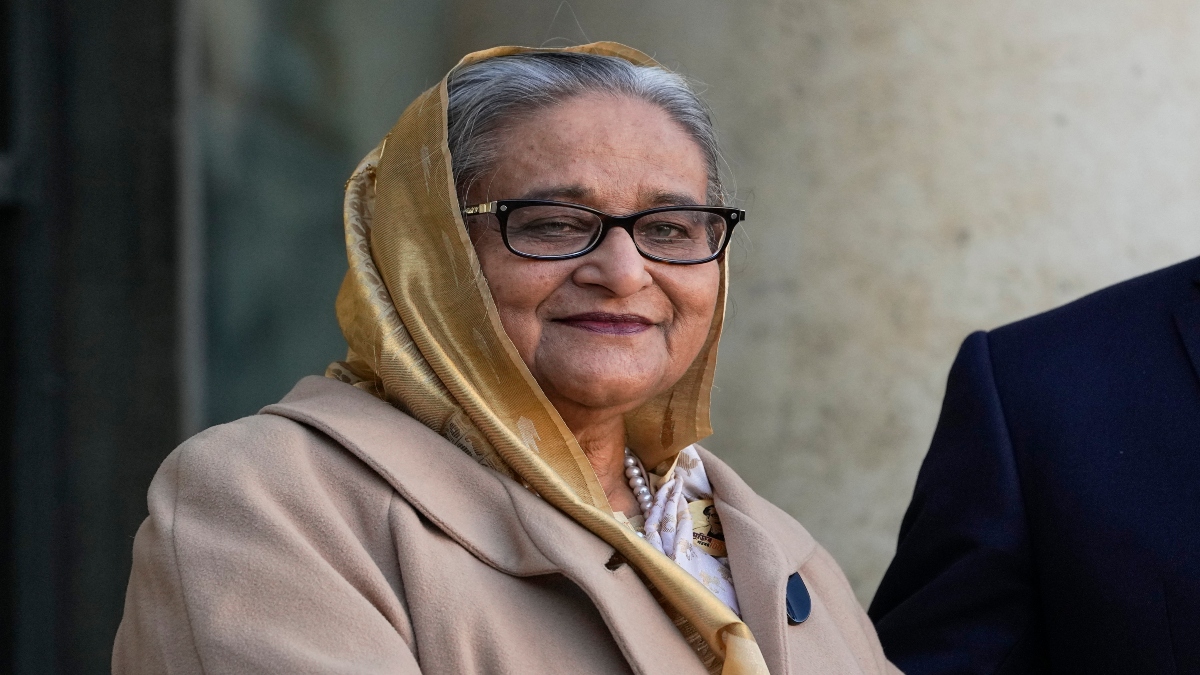Bangladesh’s International Crimes Tribunal on Monday sentenced former Prime Minister of Bangladesh Sheikh Hasina to death on three out of five counts as it delivered a verdict in the crimes against humanity case.
Apart from Hasina, two of her top aides, former home minister Asaduzzaman Khan Kamal and former inspector general of police Chowdhury Abdullah Al-Mamun, have also been convicted of committing crimes during the protests last year. While Kamal received a death sentence, Al-Mamun was awarded a five-year prison sentence because he was the approver of the prosecutor.
The ruling was delivered on Monday by Chairman Justice Md Golam Mortuza Mozumder amid tight security across the country. Interestingly, it was the Hasina regime that established the tribunal when she was in power, to punish those who “attempted to destroy the country”.
As Hasina meets her fate in the court she created, the following are the charges she was accused of.
5 charges against Hasina
Count 1 - The prosecutors accused defendants of “murder, attempted murder, torture, and other inhumane acts.” Hasina and her aides were accused of “abetting, inciting, facilitating, being complicit in, and failing to prevent these crimes committed against civilians by law enforcement.” The prosecutors also alleged an armed cadre of the Awami League was also involved in the violence.
The court mentioned that after Hasina’s July 14 press briefing, former home minister Asaduzzaman, former IGP Mamun, and other high officials of the then government abetted, assisted, and were complicit in the attacks of “unarmed” student protesters.
Count 2 - Hasina was also convicted of “ordering the extermination of student protesters through the use of helicopters, drones, and lethal weapons”. During the trial, the prosecutors argued that the then-home minister and the then-IGP facilitated and executed this directive by instructing law enforcement personnel under their authority.
Quick Reads
View AllCount 3: Hasina and his aides were also charged with the murder of Abu Sayed, a protesting student, near Begum Rokeya University in Rangpur. Under the count, the prosecutor accused Hasina of making inflammatory remarks and ordering the use of deadly weapons against protesting students.
During the July protests, law enforcement officers fired multiple rounds at close range into the chest of student protester Abu Sayed without provocation.
Count 4: The defendants were convicted of the shooting and murder of six unarmed protesters in Dhaka’s Chankharpul on August 5 last year. Under this count as well, Hasina was accused of making inflammatory remarks and ordering the use of deadly weapons against student protesters.
During the trial, the prosecutors alleged that the shooting and killing of six unarmed protesters in Chankharpul was carried out “knowingly under the defendants’ orders, incitement, abetment, facilitation, complicity, and conspiracy, constituting crimes against humanity.”
Count 5: The defendants in the case are also accused of shooting and burning six student protesters in Ashulia on August 5 last year. While five of them were later burned after death, the sixth victim was reportedly set on fire while still alive.
What she is convicted of
In a historic verdict on Monday, former Prime Minister Hasina was sentenced to death by the ICT after he was found guilty of committing crimes against humanity. Hasina was convicted on three out of five charges: Incitement of violence, issuing an order to kill and inaction over the July protests, which took a violent turn.
Other than Hasina, former Home Minister of Bangladesh, Asaduzzaman Khan Kamal, was also sentenced to death. Meanwhile, former inspector general of police Chowdhury Abdullah Al-Mamun, who later became an approver, was awarded leniency and received a five-year prison sentence.
All the convicts will now have 30 days to appeal the verdict to the Bangladesh Supreme Court. However, they will have to come back to Bangladesh and surrender themselves to the authorities to make that appeal. After the appeal is made, the Supreme Court will have 60 days to uphold or overturn the ICT’s ruling.
)